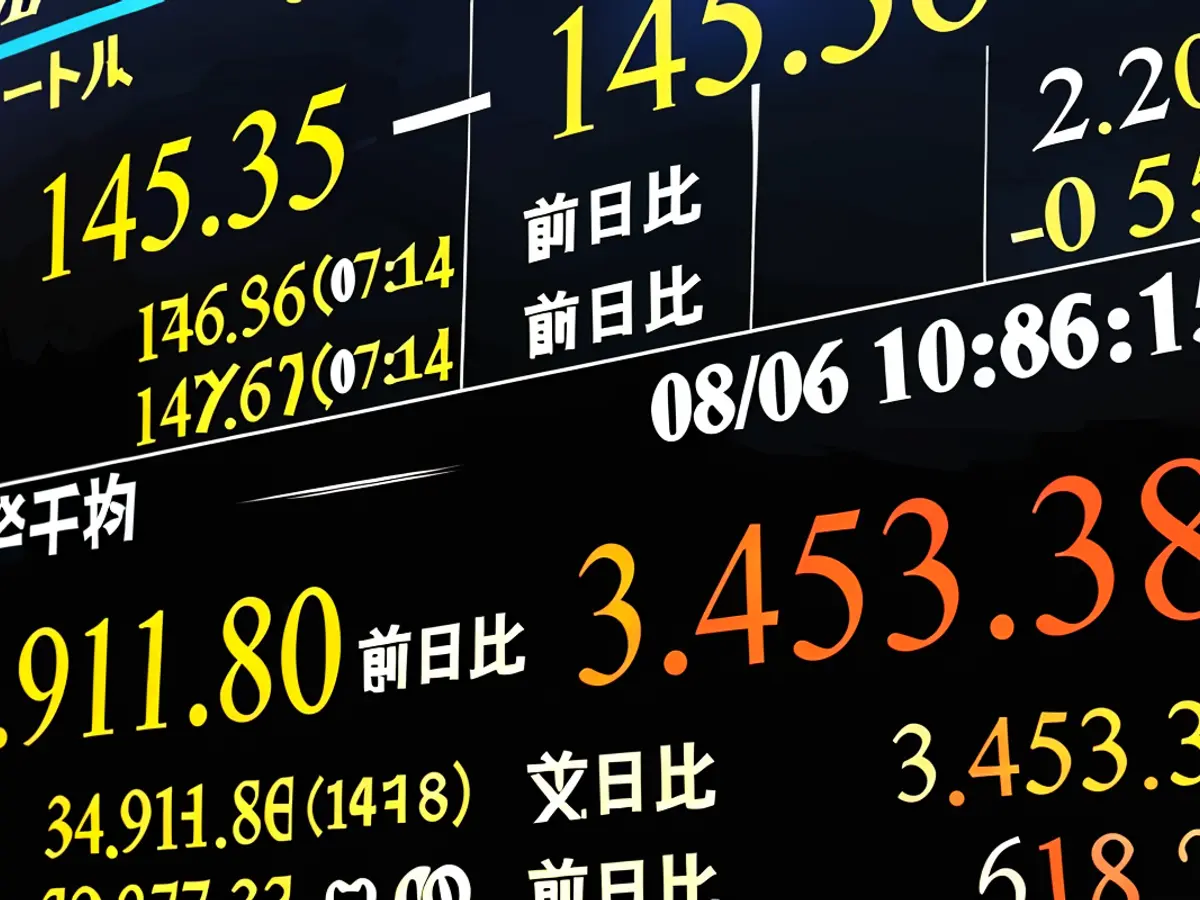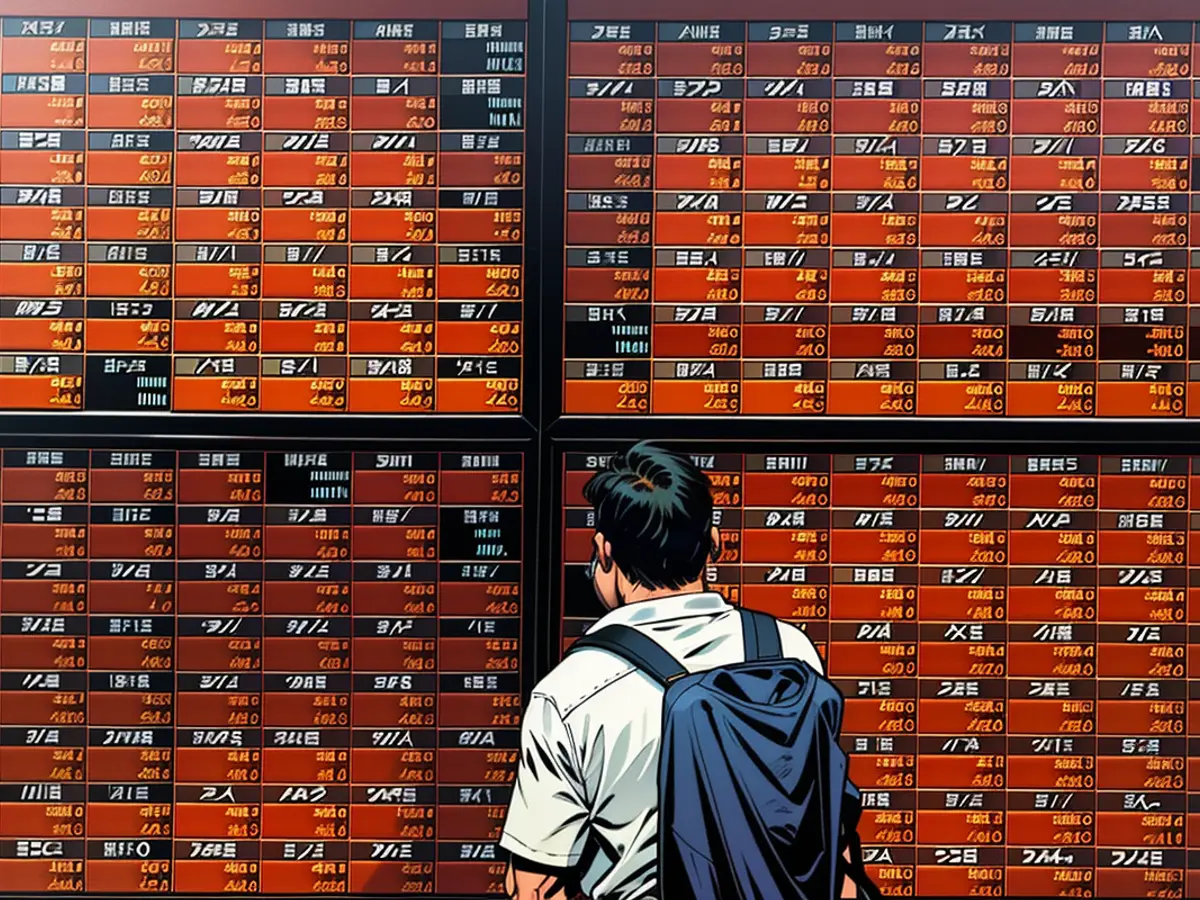Nikkei is making a record comeback.
There's significant movement on the stock markets again: After the crash, some Japanese stocks are rebounding strongly. The Nikkei index has made a massive jump.
In a surprising turnaround, Japanese stock markets have recovered from their historic plunge on Monday. After suffering the biggest single-day loss since Black Monday 1987, the Nikkei index recorded its largest-ever single-day point gain. In Tokyo, the index of 225 stocks rose 9.4% to 34,416.32 points, while the broader Topix index gained 9.3% to 2,434.21 points.
This recovery followed a 12.4% drop the previous day, triggered by global market turmoil, recession fears in the US, and concerns about the unwinding of yen-funded investments.
The recovery was led by technology stocks, with Tokyo Electron gaining more than 16% and chip tester maker Advantest up 14.5%. SoftBank Group, a tech investor, also saw a 9.3% increase. The volatile trading triggered multiple automatic trading suspensions, leading to temporary halts in Topix and Nikkei futures.
In China, markets barely managed to edge into positive territory. Investors continued to worry about the slow economic recovery in China. The Shanghai Stock Exchange gained 0.2% to 2,866.69 points. The index of major companies in Shanghai and Shenzhen was flat at 3,341.45 points. The Chinese stock market fell more than 1% the previous day, but held up relatively well compared to other regions. Analysts attribute this to the already weak state of the Chinese market, which makes it somewhat insulated from global volatility.
"The impact is limited because Chinese stocks are already at a low level and relatively immune to global market volatility," said Xia Haojie, an analyst at Guosen Futures in Shenzhen. Many foreign investors have already left China, and those who suffered large losses are unlikely to sell further.
"Perfect Storm" for Collapse
Analysts cite weak US economic data, particularly the jobs report released on Friday showing only 114,000 new jobs created last month, far fewer than expected, as a major cause of the turmoil. The US unemployment rate also rose to its highest level since October 2021.
Previously, weak US industrial data had raised questions about whether the US Federal Reserve had kept interest rates and borrowing costs too high for too long. Investors are now worried that the Fed waited too long to change its policy, given the disappointing US jobs data and a series of other weak economic indicators pointing to a potential recession, explained market analyst Fawad Razaqzada of City Index and Forex.com.
Stephen Innes, an analyst, also noted that the mood in Asia had already deteriorated after companies like Tesla and Alphabet reported disappointing earnings, the Japanese central bank raised interest rates, and Chinese economic data weakened. Combined, these factors created a "perfect storm" for a market crash, Innes explained.
In Europe, key indices closed the day on Monday with losses of around two percent: Frankfurt fell by 1.82 percent, London by 2.04 percent, Milan by 2.27 percent, Madrid by 2.34 percent, and Paris by 1.42 percent. The cryptocurrency Bitcoin plummeted by more than ten percent.
Given the global market turmoil and recession fears in the US, the rebound of some Japanese stocks, such as Nikkei's massive rise of 9.4%, can be seen as a positive sign for the overall economic recovery. However, concerns about the Chinese economy persist, with its markets barely managing to edge into positive territory.
Despite the US Federal Reserve potentially keeping interest rates too high for too long, leading to weak economic data and recession fears, the recovery of certain markets, like Japan, suggests a complex interplay of factors at play in the global economy.








